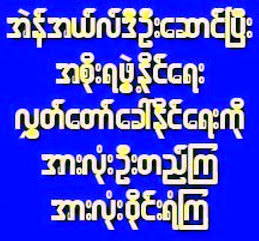| By AMBIKA AHUJA / AP WRITER | Thursday, October 9, 2008 |
BANGKOK — Leaders of Thailand's anti-government protests said Thursday they will surrender to police after a court dropped treason charges against them, but vowed to continue their sit-in at the prime minister's office.
Hundreds of black-clad doctors and nurses, meanwhile, marched to the national police headquarters in Bangkok, demanding that the government step down to take responsibility for clashes between police and protesters two days earlier in which two people were killed and more than 443 were injured, including 20 police.
| Anti-government demonstrators march in protest past a popular shopping district in Bangkok on October 9. The protesters, consisting of black-clad doctors, nurses, lecturers and university staff, waved placards condemning Thai Prime Minister Somchai Wongsawat after police cracked down on street protesters on Tuesday. (Photo: Reuters) |
Arrest warrants were issued for the alliance's nine leaders August 27, the day after they led thousands of protesters onto the grounds of Government House. They have occupied the complex since then, demanding the resignation of leaders linked to former Prime Minister Thaksin Shinawatra, who was ousted in a 2006 military coup for alleged corruption and misuse of power.
The Appeals Court on Thursday revoked three of the five charges on the warrants—treason, stockpiling of weapons and refusing to disperse. It said it would issue new warrants with the two remaining charges of inciting a public disturbance and illegal assembly, which carry prison terms of seven and three years respectively.
Protest leaders had said they were willing to fight the charges, except treason, which carries a possible death sentence and that they deemed unjustified.
"We have never accepted the charges of insurrection and stockpiling of weapons in the first place so I am grateful that the court revoked them," Sondhi told protesters from a stage on the Government House lawn. "We will report to the police for the rest of the charges."
"But we will not leave Government House until they come to disperse us," he said to loud cheers.
Two of the nine protest leaders—Chamlong Srimuang and Chaiwat Sinsuwongse—were arrested recently after leaving the grounds of the compound. The Criminal Court said Thursday they would be released and waived bail of 100,000 baht (US $2,900) when a senator agreed to act as their guarantor. The others had escaped arrest by refusing to leave Government House.
The prime minister and his Cabinet have been forced to operate temporarily out of Bangkok's old airport.
The development came two days after the protesters clashed with riot police in the worst political violence in Thailand in more than a decade.
Both sides have accused the other of using excessive force.
Some protesters had their limbs or feet blown off, but police insist they only used tear gas and that some demonstrators may have been hurt by explosives they themselves were carrying. AP reporters saw police using stun grenades.
Police also have faced criticism for firing the tear gas canisters directly at the crowd, rather than aiming away from the protesters and letting the wind carry the gas into the crowd—as is the general practice with riot police.
Protesters said their gathering was peaceful, but many used iron rods, slingshots, firecrackers and bottles to attack police. An AP Television News reporter saw at least three protesters carrying guns.
The protesters from the People's Alliance for Democracy say Prime Minister Somchai Wongsawat is a pawn of Thaksin, his brother-in-law. Thaksin has fled to London to escape an array of corruption charges.
Thaksin, a former telecommunications billionaire, was highly popular among Thailand's rural majority. The alliance wants sweeping changes to the country's election system to reduce the power of the rural poor, who it claims are susceptible to vote-buying by corrupt politicians.







No comments:
Post a Comment